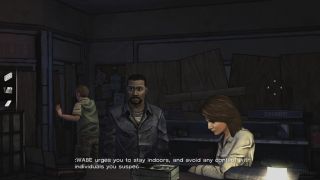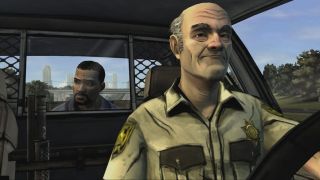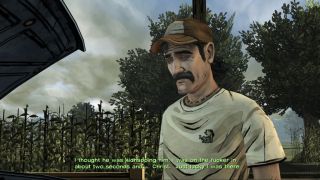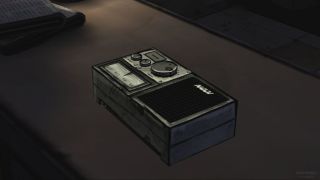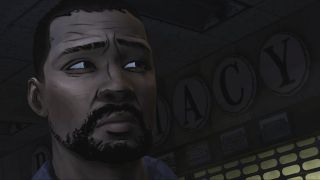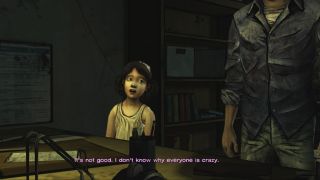What would you do if someday, while doing your job or while sitting around with friends, you saw that some of the people around you are turning into zombies? Would you run, scared, trying to get somewhere safe and protected? Would you try to band with others to fight back? Would you simply become one of the victims, because you are not fast, strong or smart enough?
These are the simple questions that zombie-based experiences, like The Walking Dead require and the players sort of provide the answer via the in-game choices they make and by the actions they choose to take.
The comic book version of the story was introduced in 2003, and since then Showtime has picked up the same core concept and characters in order to create a very well-received television series, which is now in the depth of its second full season.
Telltale Games has a long history of picking up interesting licenses and creating video games around them without troubling the core continuity and does the same with The Walking Dead, launching an episodic title that captures the core themes of the zombie universe but does not push the adventure mechanics too far.
Story
The main character is surprising because of two characteristics: he is a condemned criminal who is initially pretty upfront about the fact that he committed a crime and he is black in an industry where only white men tend to get the leading roles.
Lee Everet is clearly burdened by his past actions, but a zombie apocalypse, complete with a little kid to take care of, is not the best moment to try and explain to everyone what he has done and why he should still be trusted.
The setup is pretty familiar: Everet has a close call with zombies and then joins up with other survivors as they try to reach a modicum of safety, makes sense of what is happening around them and live with one another under extreme tension.
The Walking Dead manages to create very solid tension by constantly asking the player, through the voice of the other characters, how much he can say while still maintaining the trust of the other members of the survivor groups you rely on to live for another day and maybe reach safety.
It also manages to underline the manner a post-apocalyptic situation changes the way we would look at humanity and the entire way we would interact with each other without delivering exposition with a heavy hand and always keeping a little mystery present, both about the overall situation and the various characters.
Some of the faces showing up during the first episode of The Walking Dead are linked to the comic series and the television show and it will be interesting to see how the rest of the season treats their presence.
Gameplay
The most successful zombie-based video games, from Resident Evil to Left 4 Dead, have been built around the action genre and it has clearly been a challenge for the team at Telltale Games to use the same themes and the Walking Dead universe to craft a game experience that comes very close to the traditional modern adventure game template (if such a thing exists).
It helps that the focus of Walking Dead is squarely on its characters and on their thoughts, rather than on non-stop undead bashing or shooting, but at times I wished to see a little more action and less talking in the game.
Players will mostly walk around areas, sometimes filmed from weird angles, looking for interesting spots to investigate and for objects to collect while also talking about the situation with other survivors and deciding on the best way to act in the near future.
From time to time, the quiet exploration and discussion is interrupted by sharp and sometimes surprising action sequences where players can bash in some zombies via the mechanic of quick button presses, either on the mouse or on a controller.
The combination actually works, mostly because action is used sparingly and because the various locations and characters are interesting to explore and talk to.
The Walking Dead is also helped by the fact that interactions between the various characters feel weighty and interesting and there’s quite a lot of foreshadowing linked to the events that will take place in the next episodes and the way some choices will play out.
The big problems are the small environments, which at times feel designed to actually limit the options that the player has and the weird way of interacting with things, relying on a pre-interaction choice in order to give something to another character rather than organically folding the interactions in the conversations.
This is neither a full adventure nor a third-party action game, but it manages to get some of the best parts of both genres and, more importantly, the mechanics fit the tone and the concept of The Walking Dead.
Graphics and audio
The engine used in The Walking Dead seems to be the same one that Telltale Games has used in most of its recent adventure game projects and that is both a good and a bad thing for this undead experience.
The cartoon take on the concept is clearly designed to hide the potential problems and the approach works most of the time, especially when the characters are in close quarters to one another, but a drop in quality is clearly visible in some textures and when a significant number of zombies is included on the same screen.
One annoying element of the graphics engine is that almost all female characters have very masculine movements, which can be quite jarring at times and tends to take me out of the game and limit my connection to them as characters.
Telltale has paid attention to the voice work and uses it well to enhance the atmosphere of the game, mainly when it comes to the main character and his young sidekick.
Everet himself comes across as fairly gentle and bright, but there are sections of the game when his delivery grows steely and an edge, linked to his past and his demons, creeps up, nicely setting up a number of possibilities for the next few episodes.
The music also contributes to the engaging world of Walking Dead, although it tends to grow a little repetitive even given the short nature of the game.
The Walking Dead is a good experience, even if it sometimes frustrates as simply a game, both for those who know the universe on which it is based and for those who one day plan to explore it further. It also sets up a good story, some interesting characters, and it uses simple mechanics to make players care about their actions and their words. But, despite all this, it feels a little underdeveloped because there are clear limits to what the player can do and, even worse, to the fact that the development team itself cannot address those limits in the coming episodes for The Walking Dead.
The Good
The Bad
Conclusion
 14 DAY TRIAL //
14 DAY TRIAL // 
